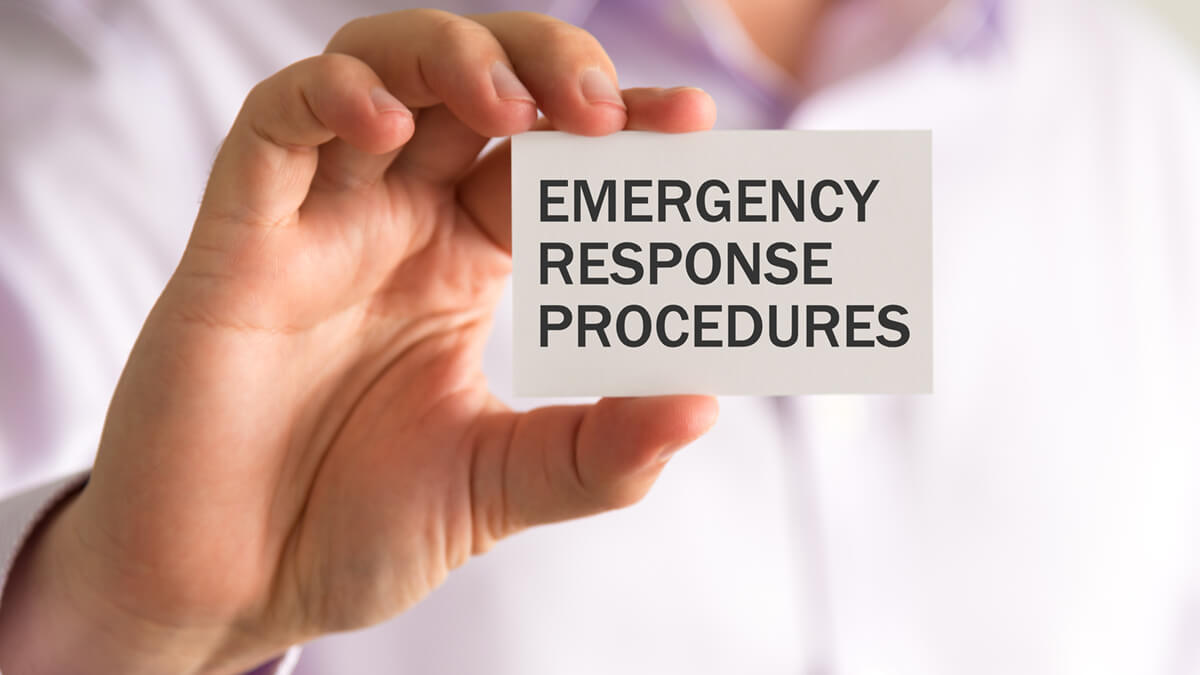From natural disasters to catastrophic accidents to terrorist attacks, emergencies and disasters fill our world. While many find it uncomfortable to consider such difficult situations, ignoring their existence can increase the likelihood that they will occur and the consequences that follow. There’s no benefit in ignoring risks and hoping you can figure things out after disaster strikes. But there are plenty of benefits to emergency preparedness.
Preparation Can Limit or Prevent Certain Disasters
Fireproofing. Earthquake-zone building codes. Flood control. Security checkpoints. Emergency plans. All of these exist in an attempt to prevent or mitigate disasters. If a building is built to survive a major earthquake, then it is more likely that more people will survive and less structural damage will occur. Proper planning and prevention can reduce the catastrophic impact of a natural disaster on communities, particularly vulnerable populations.
This principle applies to all areas of potential risk. If we can identify our vulnerabilities and take measures to reduce or eliminate them, we can help limit or even prevent some disasters and emergencies.
Preparation Can Save Lives
Emergency preparedness can be a life-or-death matter. This is as true for your family as it is for businesses, cities, and nations. Predetermined escape and evacuation routes can ensure people aren’t trapped in dangerous locations. Accessible stores of water and food can prevent people from starving or suffering from dehydration. Emergency shelters can keep people out of perilous weather and offer a temporary place to live after a disaster has occurred.
The list goes on. And the list can change depending on the type of disaster and the specifics of the situation. Being prepared for a fire might not help you survive an earthquake. A plan to save people from a flood is unlikely to be useful in the event of a bombing. A method of evacuating mobile patients from a hospital might not work for disabled patients or those requiring specialized equipment to survive. We need to consider all potential threats to our communities as well as the social vulnerability of groups including the homeless, elderly, and disabled.
From having a system in place to properly identify and prevent potential disasters to having a strategy for handling the response and recovery, every step in emergency management matters. At every step, proper planning and response could mean the difference between life and death.
Preparation Can Reduce Fears
Disasters and emergencies can take a psychological toll on both victims and responders.* While there’s no way to completely prevent the adverse psychological effects of experiencing a traumatic event, proper planning can reduce suffering by preventing needless hardship and eliminating or reducing uncertainty. Knowing what to do and where to go can lessen the fear of the unknown and help all involved reach safety faster.
Preparation Can Make It Easier to Recover
Even with the best possible planning, a disaster or emergency often results in loss of property and/or life. One of the keys of emergency preparedness is to ensure losses aren’t catastrophic. Important documents need to be backed up in a safe location. Vital positions of leadership need succession plans. Families need wills. Everyone—from individuals to businesses to government agencies—needs a place to relocate in the event a home or office is destroyed. Knowing how you will keep everything functional after a loss can help you recover more quickly.
How Can You Help Others Be Better Prepared?
Preparing for emergencies is full of complexities. To do it right, most organizations hire an expert to create emergency management plans and to lead response and recovery efforts when a disaster does occur. This is where you can play a role. With an MS in Criminal Justice specializing in Emergency Management, you can acquire the skills you need to help communities and organizations prepare for emergencies and reduce the consequences of disaster, as well as assist in leading the efforts of first responders and volunteer organizations when a disaster happens.
One of the best ways to earn your master’s is through an online university. With online education, you can stay in your current job and take advantage of the flexibility online colleges offer. It’s a great way to earn a master’s degree without upending your life.
We’re in this together—for our families, our communities, and our world. Through an online degree program focused on emergency management, you can learn how to help others in moments of crisis. Emergency management is a vital function of city, state, and federal governments, to ensure the safety and security of all of us.
Walden University is an accredited institution offering an MS in Criminal Justice specializing in Emergency Management. Expand your career options and earn your degree in a convenient, flexible format that fits your busy life.
*American Psychological Association, Disasters, on the internet at www.apa.org/topics/disasters.
Walden University is accredited by The Higher Learning Commission, www.hlcommission.org.




